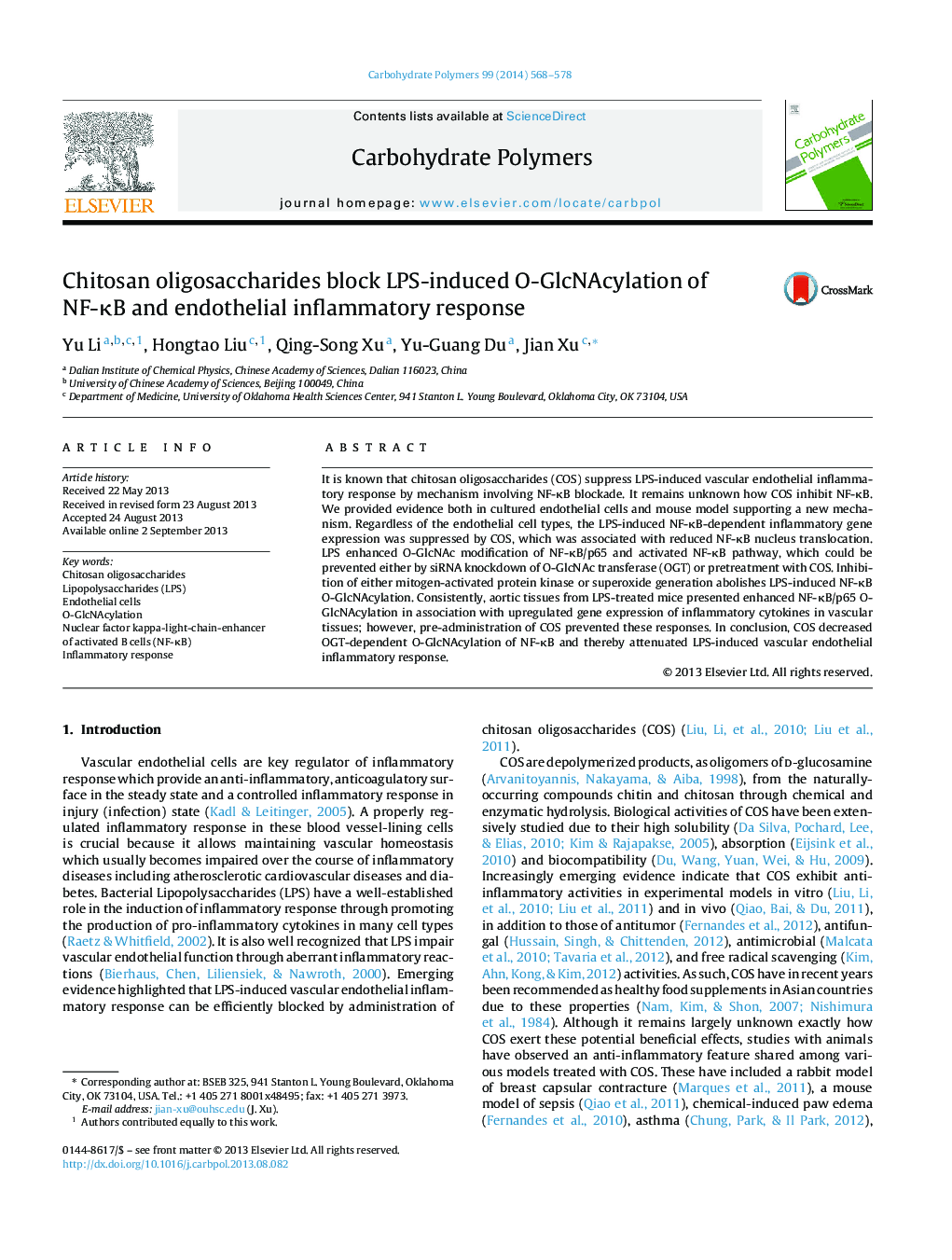| Article ID | Journal | Published Year | Pages | File Type |
|---|---|---|---|---|
| 7793572 | Carbohydrate Polymers | 2014 | 11 Pages |
Abstract
It is known that chitosan oligosaccharides (COS) suppress LPS-induced vascular endothelial inflammatory response by mechanism involving NF-κB blockade. It remains unknown how COS inhibit NF-κB. We provided evidence both in cultured endothelial cells and mouse model supporting a new mechanism. Regardless of the endothelial cell types, the LPS-induced NF-κB-dependent inflammatory gene expression was suppressed by COS, which was associated with reduced NF-κB nucleus translocation. LPS enhanced O-GlcNAc modification of NF-κB/p65 and activated NF-κB pathway, which could be prevented either by siRNA knockdown of O-GlcNAc transferase (OGT) or pretreatment with COS. Inhibition of either mitogen-activated protein kinase or superoxide generation abolishes LPS-induced NF-κB O-GlcNAcylation. Consistently, aortic tissues from LPS-treated mice presented enhanced NF-κB/p65 O-GlcNAcylation in association with upregulated gene expression of inflammatory cytokines in vascular tissues; however, pre-administration of COS prevented these responses. In conclusion, COS decreased OGT-dependent O-GlcNAcylation of NF-κB and thereby attenuated LPS-induced vascular endothelial inflammatory response.
Keywords
Related Topics
Physical Sciences and Engineering
Chemistry
Organic Chemistry
Authors
Yu Li, Hongtao Liu, Qing-Song Xu, Yu-Guang Du, Jian Xu,
